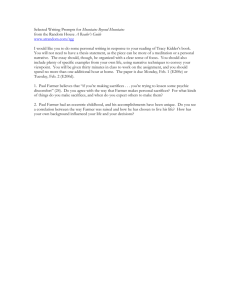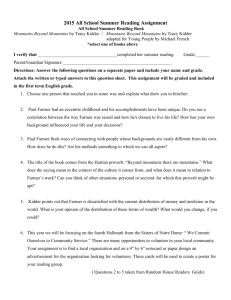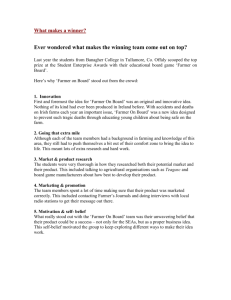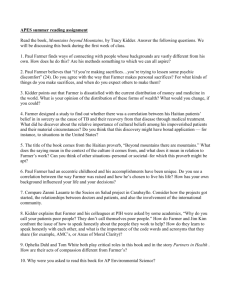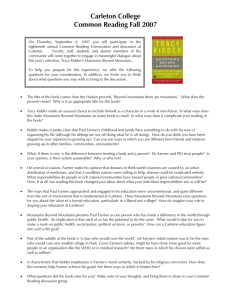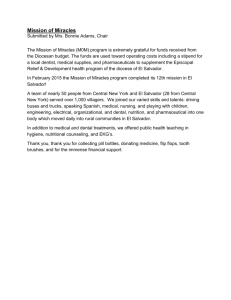Mountains Beyond Mountains October 11, 2007 Alba Amaya-Burns, MD
advertisement
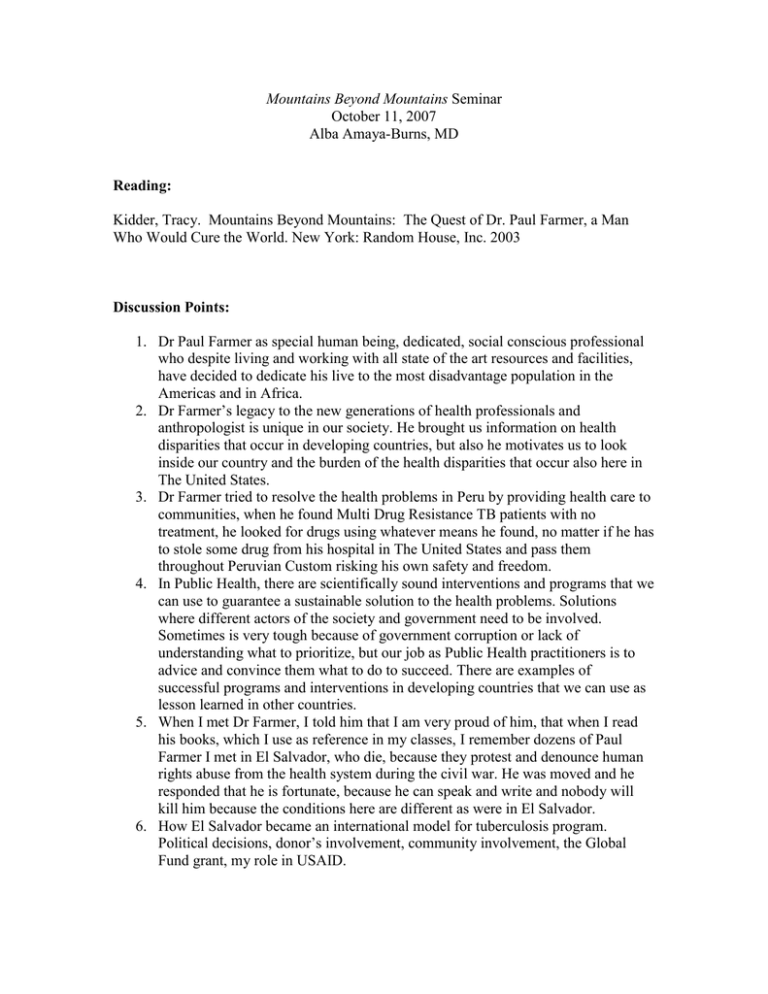
Mountains Beyond Mountains Seminar October 11, 2007 Alba Amaya-Burns, MD Reading: Kidder, Tracy. Mountains Beyond Mountains: The Quest of Dr. Paul Farmer, a Man Who Would Cure the World. New York: Random House, Inc. 2003 Discussion Points: 1. Dr Paul Farmer as special human being, dedicated, social conscious professional who despite living and working with all state of the art resources and facilities, have decided to dedicate his live to the most disadvantage population in the Americas and in Africa. 2. Dr Farmer’s legacy to the new generations of health professionals and anthropologist is unique in our society. He brought us information on health disparities that occur in developing countries, but also he motivates us to look inside our country and the burden of the health disparities that occur also here in The United States. 3. Dr Farmer tried to resolve the health problems in Peru by providing health care to communities, when he found Multi Drug Resistance TB patients with no treatment, he looked for drugs using whatever means he found, no matter if he has to stole some drug from his hospital in The United States and pass them throughout Peruvian Custom risking his own safety and freedom. 4. In Public Health, there are scientifically sound interventions and programs that we can use to guarantee a sustainable solution to the health problems. Solutions where different actors of the society and government need to be involved. Sometimes is very tough because of government corruption or lack of understanding what to prioritize, but our job as Public Health practitioners is to advice and convince them what to do to succeed. There are examples of successful programs and interventions in developing countries that we can use as lesson learned in other countries. 5. When I met Dr Farmer, I told him that I am very proud of him, that when I read his books, which I use as reference in my classes, I remember dozens of Paul Farmer I met in El Salvador, who die, because they protest and denounce human rights abuse from the health system during the civil war. He was moved and he responded that he is fortunate, because he can speak and write and nobody will kill him because the conditions here are different as were in El Salvador. 6. How El Salvador became an international model for tuberculosis program. Political decisions, donor’s involvement, community involvement, the Global Fund grant, my role in USAID. 7. How El Salvador now is recognized by The World Health Organization as the only country in the region that is implementing the 2007-2015 Stop TB and WHO strategy. The University of Florida is proposing to create in El Salvador a Center of Excellence for TB training in Central America. 8. Q & A
